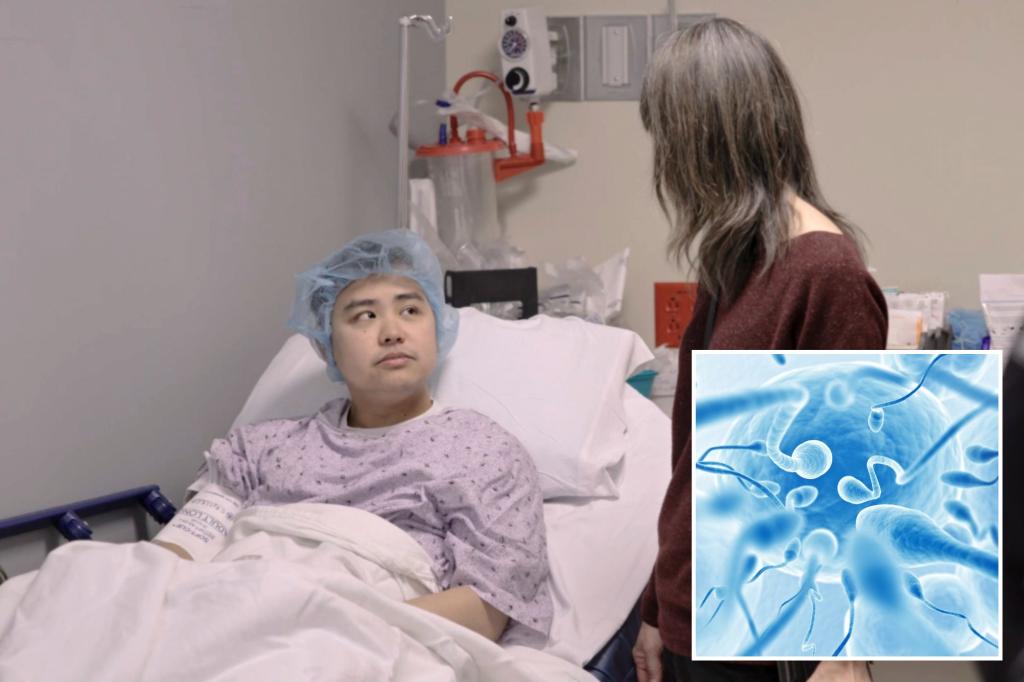All in good science.
While sperm counts have significantly dropped in recent years and more men are having fertility issues these days — thanks to a new innovative trial, researchers might have a solution to this ongoing problem.
Although it’s still in the early stages, a new sperm transplant procedure to reverse infertility was just trialed on 26-year-old Jaiwen Hsu, according to the preprint server for health services, medRxiv.
Azoospermia is the technical term for when there isn’t any sperm present in a man’s ejaculate.
The common condition — which affects 645,000 men between the ages of 20 to 50 — makes it difficult to naturally conceive a child.
Hsu was diagnosed with bone cancer at only 11-years-old.
After receiving chemo, the young male was diagnosed with azoospermia — although men can be diagnosed with it for varying reasons, like genetics and hormonal dysfunction.
Something as minor as using the heated seat function in a car can also reduce sperm production.
Thankfully, the young cancer survivor preserved his stem cells before receiving chemo — since the treatment can take a toll on the reproductive system and affect a patient’s fertility later down the road.
This allowed doctors at the University of Pittsburgh Medical Center (UP) to reintroduce those stem cells into the rete testis — “a network of small tubes that connects to the seminiferous tubules, where sperm are typically produced,” as explained by Live Science.
The hope is for those cells to implant into the seminiferous tubules to produce sperm — “mimicking the natural process that occurs during puberty.”
While no sperm has been detected yet, ultrasounds confirmed that Hsu’s hormone levels and testicular tissue haven’t been disturbed.
Researchers plan to analyze the 26-year-old’s semen twice a year to monitor any sperm changes, according to the outlet.
“We’re not expecting a miracle result,” said reproductive scientist Kyle Orwig, PhD, a professor at UP’s Department of Obstetrics, Gynecology and Reproductive Sciences, according to the Associated Press.
“What we expect is that the transplant of stem cells will produce a small amount of sperm and that in order to achieve a pregnancy with his partner that he would need a follow-up assisted reproductive technology, like IVF [in vitro fertilization],” Orwig added.
Many medical professionals are optimistic about this procedure.
“If refined and proven safe, spermatogonial stem cell (SSC) transplantation could be a revolutionary fertility-restoring technique for men who’ve lost the ability to produce sperm,” Dr. Justin Houman, an assistant professor of urology at Cedars-Sinai Medical Center told Live Science.
It could be especially helpful for “cancer survivors treated before puberty or men with genetic or acquired testicular failure,” he added.
He went on to say: “We need to proceed cautiously, and with rigorous oversight. This is promising science — but it’s still early days.”
Read the full article here







